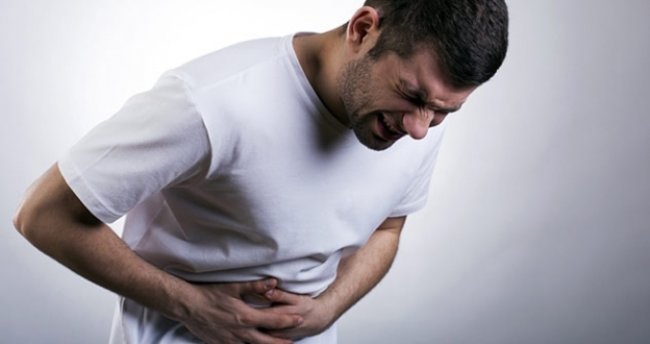# Information Form


The appendix, also known as appendices, is a blind bowel of 5-6 cm in length and 2-3 mm in diameter originating from the origin of the large intestine. Many microorganisms live here. These microorganisms are microbes that live in the intestine. When the inside of the appendix is blocked by feces or gallstones, its connection to the large intestine is weakened. Thus, microbes gain disease-causing properties. Then inflammation begins to occur here. The accumulation of microbes and the formation of inflammation causes an increase in the pressure in appendicitis and begins to rot. Inflammation of appendicitis can cause appendicitis. The explosion of appendicitis occurs when infectious inflammation is discharged into the abdomen; life is a serious problem that creates danger. Therefore, the patient must be admitted to the hospital for treatment. The most common treatment is to cut and remove the inflamed appendix. Symptoms of appendicitis include severe pain on the right side of the abdomen, high fever and nausea.
Who Appends Appendicitis?
Appendicitis usually occurs after 3 years of age. Although seen in all age groups, the incidence decreases after 35 years of age.
Men have a higher incidence of appendicitis than women.
Symptoms of appendicitis
Severe abdominal pain
Loss of appetite
Nausea
Vomiting immediately after the onset of pain
Swelling of the abdomen
Constipation or diarrhea can be seen with gas
Difficult to extract gas
Fever does not usually rise above 38 ° C
Pain in the rectum
Painful urination
Symptoms of appendicitis: abdominal pain
The most common symptoms of appendicitis are abdominal pain, and the pains spreading to the abdominal region are dull and persistent. However, as the right lower part of the abdomen moves towards the pain, the pain becomes more severe and may be referred to as “sharp pain”. There is increased pain with pressure or movement. There may be “dull pain throughout the abdomen and sharp and severe pain in the lower right abdomen. Pain in the right area corresponds to the upper part of the hip bone.
What are the causes of appendicitis?
Nutrient residues such as pomegranate seeds, lemon seeds that cannot be fully digested in the stomach escape from the small intestine to the appendix
Swelling of the lymph nodes in the mouth of the appendix due to inflammation of the digestive system and obstruction of the appendix as a result of blows to the abdomen
Chrons, Ulcer, and ulcerative colitis
tumors
Intestinal worms, worms, and parasites
Genetic predisposition
Bacterial infections, intestinal infections
Viruses, fungi and other microorganisms can also damage the appendix tissue and cause inflammation.
Appendicitis Treatment
Appendicitis is a disease that is easy to treat. Appendicitis is an area where antibiotics are hard to reach. Surgery may be required for definitive treatment. Appendicitis surgery is an easy operation. Appendicitis is taken during this surgery. It takes about 30-40 minutes and requires hospitalization for the day.
Operation for appendicitis
After receiving treatment for infection, you may need to undergo surgery to remove your appendicitis. If you have a ruptured abscess or appendix, surgery may be necessary immediately. Surgery for the removal of appendicitis is called appendectomy. This can be done by open surgery or laparoscopy. Laparoscopy is less invasive, shortening recovery time. However, open surgery may be required if you have abscess or peritonitis. Rarely, appendicitis can heal without surgery. If abdominal pain is low and diagnostic tests are normal, this is only an option. In this scenario, your treatment plan may contain only antibiotics and a liquid diet until your symptoms are resolved.
How long does appendicitis cure?
If your treatment has been performed by laparoscopy, you will probably leave the hospital a few days after surgery. This surgery is less invasive, so the recovery time is short. If you undergo open surgery, or if you experience additional complications such as peritonitis, you may need to stay in the hospital for up to a week and evacuation may be necessary. You may experience tenderness and bruise after surgery. This will develop over time and can be relieved by benchtop painkillers such as acetaminophen (Tylenol) and ibuprofen (Advil). You may also experience temporary constipation. Staying hydrated and eating fiber-rich foods can help regulate bowel movements.






